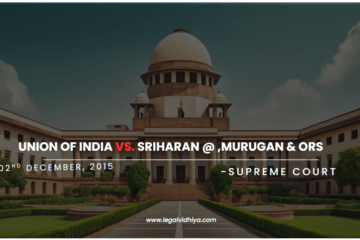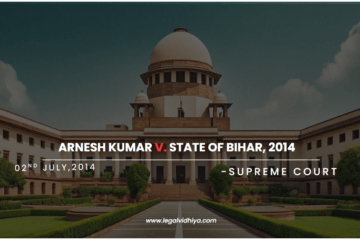
Introduction: The National Legal Services Authority vs. Union of India case, decided in 2014, is a landmark judgment that recognized the rights of the transgender community to gender identification beyond the traditional binary of male and female. This case introduced legal protections for the third gender and acknowledged the ongoing violation of rights of transgender persons under various articles of the Constitution.
Facts: In 2012, the National Legal Services Authority, a body constituted to provide legal representation to marginalized sections of society, filed a writ petition with the Supreme Court on behalf of members of the transgender community. The petition alleged ongoing violations of fundamental rights. Another organization, the Poojaya Mata Nasib Kaur Ji Women Welfare Society, also filed a petition seeking similar reliefs in respect of the Kinnar community, which was also a transgender community. Finally, Laxmi Narayan Tripathy, an individual who identified as a Hijra, impleaded herself as an Intervenor to represent the cause of the members of the transgender community.
Issues: The primary issue in the case was whether the non-recognition of the gender identity of the members of the transgender community led to the violation of their rights under Article 14, Article 15, Article 16, Article 19, and Article 21 of the Constitution.
Arguments: The Petitioners argued that every person of the transgender community should have a legal right to decide their sexual orientation and determine their own gender identity. They contended that the discrimination they faced on grounds of gender violated their rights under the Constitution. The Intervener also argued for a third-gender identity, drawing upon historical references, practices in other jurisdictions and international norms.
The Respondents, however, submitted that the issues raised by the transgender community were sensitive human rights issues and would need consideration by the Ministry of Social Justice and Empowerment. They pointed out that an
“Expert Committee on Issues Relating to Transgender Persons” had already been set up to consider the question, and the views of the Petitioners and others would be taken into consideration in the consultation process.
Judgement: The Court held that the recognition of one’s gender identity lay at the heart of the right to dignity, and that gender identity was a fundamental aspect of life. The Court also noted several international instruments supporting this proposition, including the Yogyakarta Principles on the Application of International Human Rights Law in relation to Sexual Orientation and Gender Identity (Yogyakarta Principles) as well as cases from various foreign courts. The Court further recognised the interrelationship of the right to privacy and the right to gender identity, and imposed a positive duty on the State to protect and recognise such rights.
Law Used in Case: The Court relied on Article 14, Article 15, Article 16, Article 19, and Article 21 of the Constitution to affirm the rights of the transgender community. The Court held that these articles, which guarantee equality, non-discrimination, and the right to life and personal liberty, also extend to the transgender community.
Conclusion: The National Legal Services Authority vs. Union of India case is a significant judgement that affirmed the rights of the transgender community to gender identification beyond the traditional binary. The Court recognized the ongoing violation of rights of transgender persons and laid down several guidelines for State and Central Governments to accord actualisation of rights to transgender persons. The Court also acknowledged the interrelationship of the right to privacy and the right to gender identity, and imposed a positive duty on the State to protect and recognise such rights. The judgement has been instrumental in advancing the rights and recognition of the transgender community in India.
Written by
Written by Bhumika Brahmbhatt an intern under legal vidhiya.
Disclaimer: The materials provided herein are intended solely for informational purposes. Accessing or using the site or the materials does not establish an attorney-client relationship. The information presented on this site is not to be construed as legal or professional advice, and it should not be relied upon for such purposes or used as a substitute for advice from a licensed attorney in your state. Additionally, the viewpoint presented by the author is of a personal nature.




0 Comments